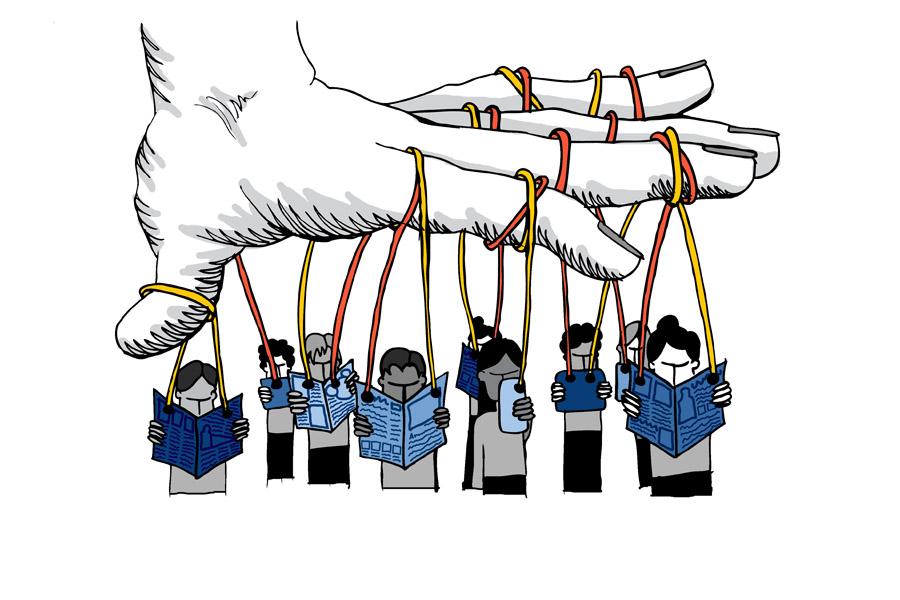Strung along by media
Opinion-based reporting manipulates perspective, skews facts
November 10, 2015
When freshman Danielle Orloff encounters media bias, she feels as if the news source has let her down.
“When I see media bias in the news I feel disappointed because a lot of people trust the media,” Orloff said. “The media is really doing a disservice to its viewers by displaying false information.”
Orloff said she encountered media bias in the recent news, regarding a stabbing in Israel. According to Orloff, the media portrayed two conflicting sides of the story, one of which, she said, was obviously false.
“I was watching a video from the news that showed a reporter talking about one of the stabbings in Israel,” Orloff said. “He flat-out said ‘this man has nothing in his hands’ but another reporter said ‘this man is obviously holding a knife in his hands,’ which was the truth.”
Chris Ison, a Pulitzer Prize-winning associate professor of journalism and mass communications at the University of Minnesota, specializes in investigative reporting and media ethics. He said he defines media bias as reporting that presents personal opinions as factual statements.
“It’s when a news organization, or the journalists in a news organization, are creating their news content in a way that doesn’t try to correct their own innate bias, or that deliberately tries to persuade rather than inform,” Ison said.
Brendan Watson is an assistant professor of journalism and mass communications at the University of Minnesota who specializes in social media and online journalism. He said social media can affect exposure to certain stories.
“Algorithms use computation, computer processes to, among other things, predict the future based on data of past actions,” Watson said. “Even if one wants to be exposed to diverse, opposing viewpoints, one is only exposed to media that conforms to one’s existing biases.”
Media bias takes various forms, but commonly occurs among less prominent sites, such as blogs, Ison said.
“(Media bias is) everywhere, but today it’s most prevalent in smaller digital media, from blog sites to social media to the commenting on the ends of stories in mainstream media,” Ison said.
